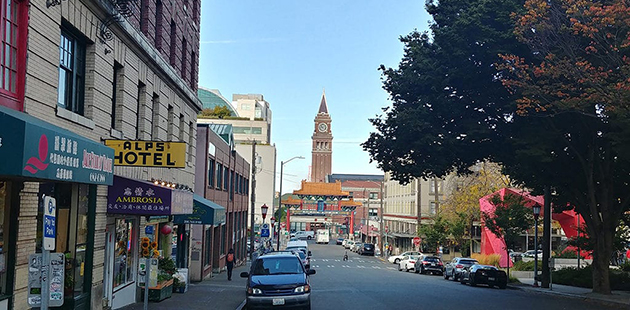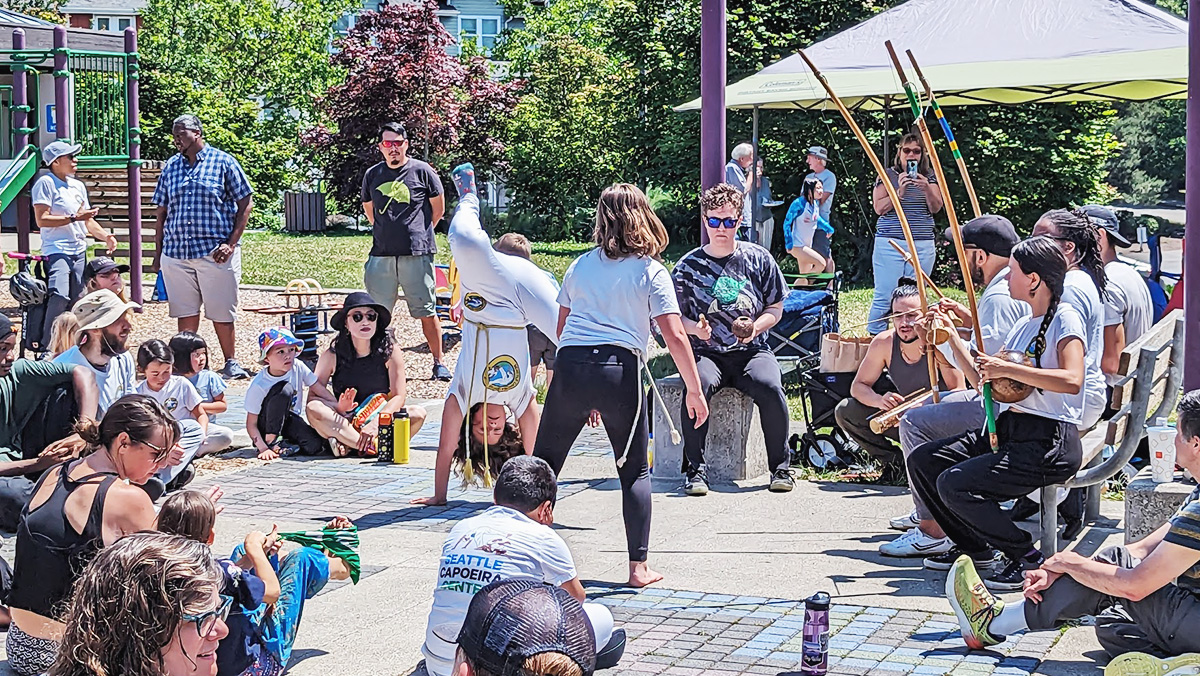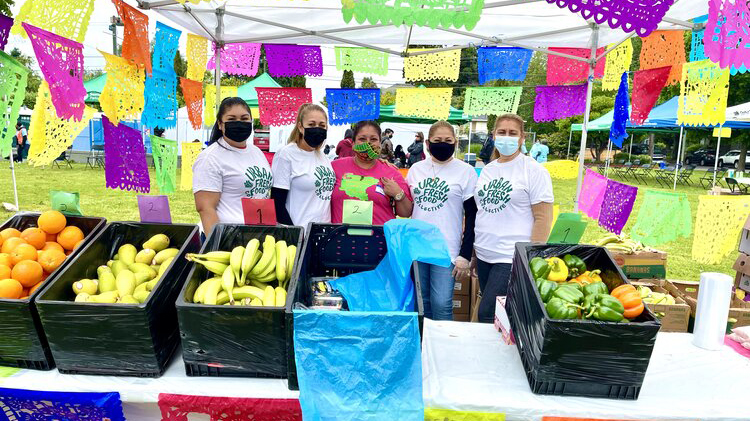 Cultivate South Park's Urban Fresh Food Collective
Cultivate South Park's Urban Fresh Food Collective The City of Seattle has awarded $2,800,000 to support community-led projects through the Seattle Department of Neighborhoods’ (DON) Food Equity Fund. Twenty-two community groups will receive awards ranging from $75,000 to $150,000 to advance projects that increase equitable access and opportunities to grow, learn about, and/or eat healthy, affordable, and culturally relevant foods. The projects are varied and include the creation of new food pantries, establishment of community meal programs, expansion of farm stands and community gardening programs, youth-led food distribution, intergenerational nutrition workshops, and more.
“Access to quality local and culturally relevant food is critical for healthy, thriving communities. Working directly with Seattleites through the Food Equity Fund, we are expanding access to these foods, and the health benefits that come with them, across our city. These kinds of partnerships and a deeply rooted commitment to equity are at the core of our One Seattle vision.” – Mayor Bruce Harrell
The Food Equity Fund was developed in 2021 in response to recommendations from the Sweetened Beverage Tax Community Advisory Board to increase investments in community work led by those most impacted by food and health inequities: Black, Indigenous, People of Color (BIPOC) communities, immigrants, refugees, low-income individuals, families with young children, youth, and elders. The fund is supported by the Sweetened Beverage Tax and, in 2022, received an additional $750,000 in funding with Seattle City Council’s adoption of the Equitable Communities Initiative Task Force recommendations.
The Food Equity Fund is comprised of two tiers. Tier 1 grants have a maximum award amount of $75,000 for projects that take between 3 to 12 months to complete. Tier 1 applications were awarded in February 2022 (view list of Tier 1 grantees). Tier 2 grants have a maximum award amount of $150,000, and cover projects that span from 15 to 24 months. Seattle Department of Neighborhoods received 62 eligible applications for Tier 2, reflecting a total of $8.4 million in funding requests.
To learn more about the Food Equity Fund visit: http://www.seattle.gov/neighborhoods/programs-and-services/food-equity-fund-.
“We are so proud to receive this grant from the City of Seattle. It will enable our youth to take on leadership positions and (re-)shape the program in ways that will make it more salient for the next group. We are also looking forward to continuing to grow and expand our partnerships with other food sovereignty activists and organizations. It’s only by investing in the next generation and working collectively, in solidarity, that we will move this city forward, towards justice.” – Friendly Vang-Johnson, Food for All Youth Leadership Program
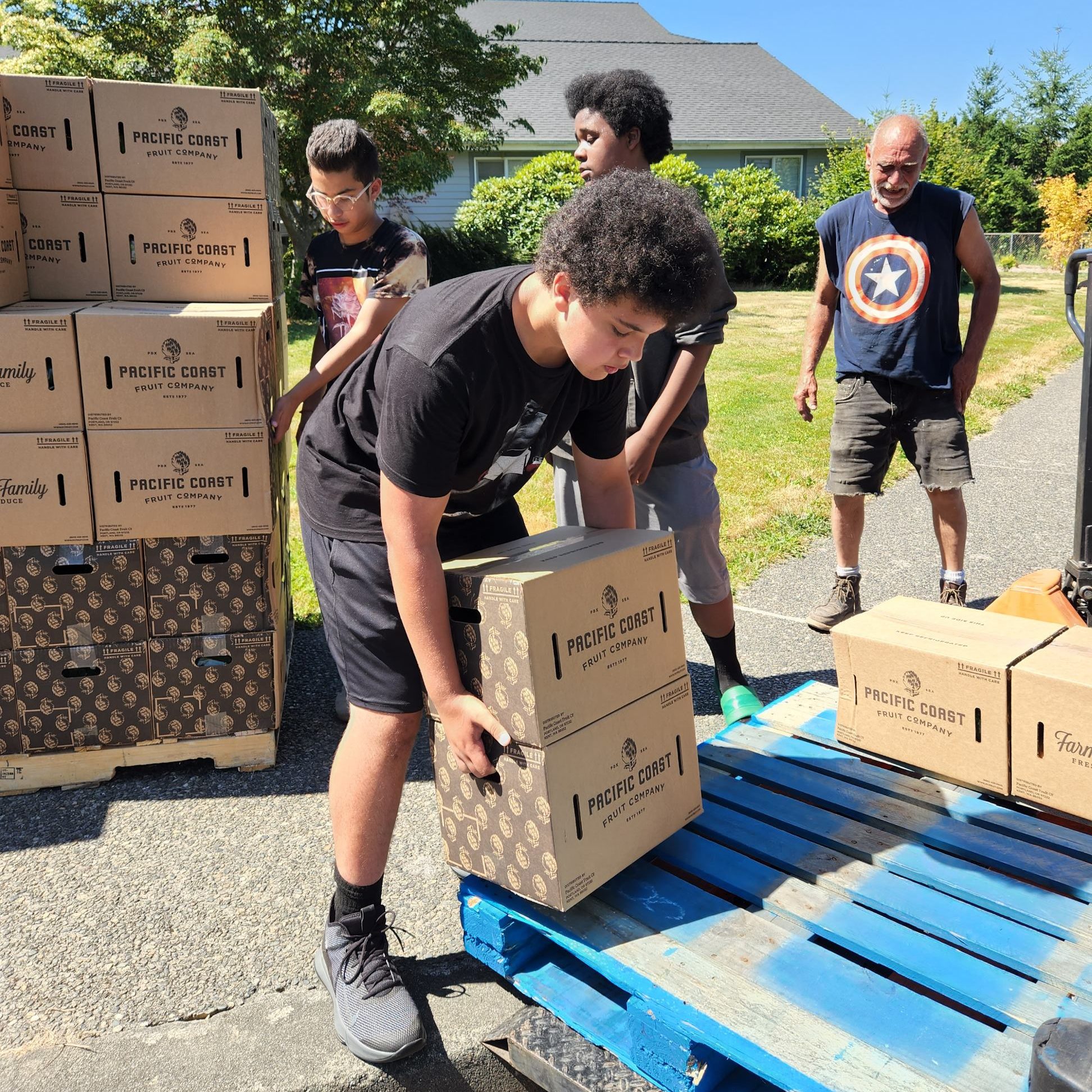
“The families with whom we share express thanks for this. What began as a huge need is now a program and a model to follow. Food has been the focus, but the impact has been much greater. When families come here or receive home deliveries, they know with certainty that we are a reliable and friendly place where they will get basic, culturally appropriate, free food without barriers.” – Mónica Pérez, Director of the Urban Fresh Food Collective at Cultivate South Park
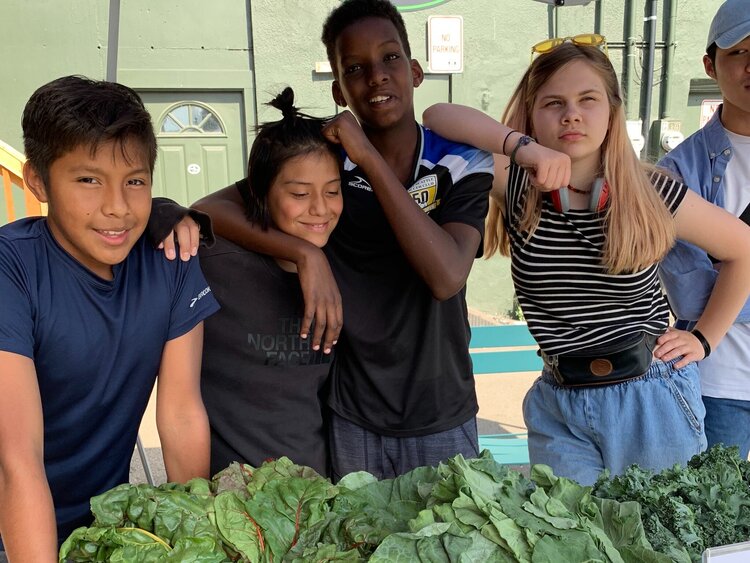
“The African Community Housing and Development (ACHD) Delridge Farmers Market is providing critical support for the health and wellbeing of our community by supporting local BIPOC-owned small businesses and providing access to high-quality, healthy foods. We greatly appreciate the City of Seattle’s investment in our unique market model.” – Hamdi Abdulle, Executive Director of African Community Housing and Development
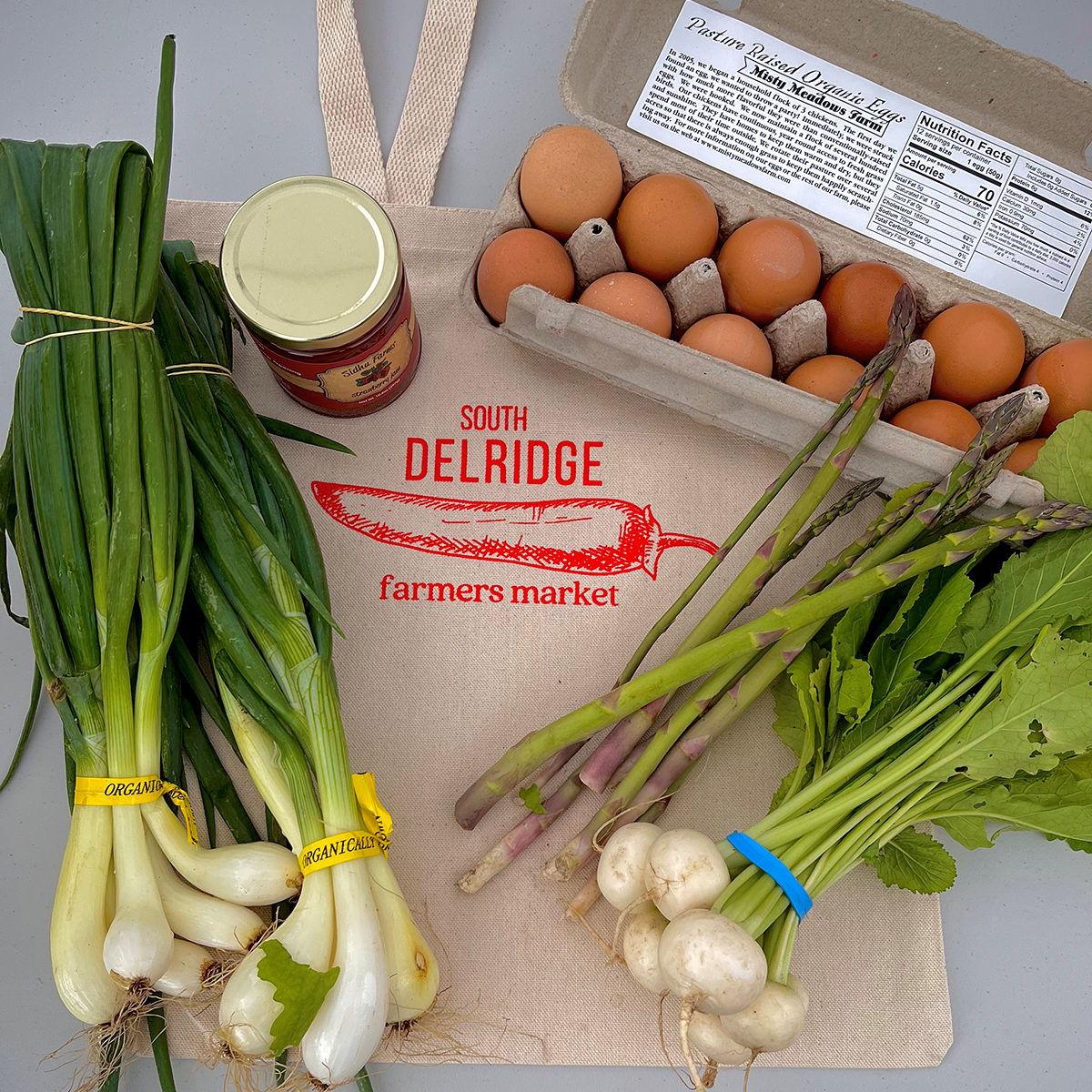
2022 Tier 2 Food Equity Fund Awards
The following community organizations will receive Food Equity Fund awards for the second tier of the 2022 funding cycle:
$150,000 to Food for All Youth Leadership Program for a community-based, youth-led food distribution and education project focused on engaging and developing leadership among BIPOC youth ages 14-17. The five participants will source and distribute approximately 15,000 pounds of culturally relevant produce from Black and Brown farmers and ethnic grocers to BIPOC communities in eight neighborhoods throughout Seattle.
$150,000 to Cultivate South Park for Urban Fresh Food Collective to produce locally grown vegetables with inter-generational groups of South Park residents at Marra Farm. The project will deliver 250 culturally relevant grocery boxes to families bi-weekly, host a weekly pantry program, host monthly health and nutrition wellness workshops at their idea lab and commissary kitchen, and offer free access to their commercial kitchen to neighborhood programs and local entrepreneurs.
$150,000 to African Community Housing & Development for Delridge Farmers Market to grow and expand the market for two years to increase food security for the neighborhood and build prosperity for Black, Indigenous, and People of Color food producers. The market will operate twice per month from May to October 2022 and weekly from May to October 2023 and will serve up to 10 culturally relevant food vendors and offer 40 free produce bags.
$150,000 to Black Star Farmers for The Black Star Farmers Mutual Aid Food Distribution Network to funnel organically grown produce to underserved communities in Central and South Seattle by collaborating with existing mutual aid organizations. The network will empower oppressed communities to reconnect to ancestral foodways, deepen their relationship with land and food, and receive free local, organic produce and/or prepared meals. Additionally, the program will advise a small cohort of five urban gardeners to increase their yield and ability to feed families in need.
$150,000 to Chief Seattle Club for ?ál?al Café to create a space for community to gather and connect with Native food and events. The social enterprise café and community center will serve food from Sovereignty farm and feature Native storytellers, traditional songs, rotating Native artist exhibits, and an Indigenous Farmer’s Market. The café anticipates serving 1,700 customers monthly and will help re-connect urban Natives to traditional food systems in Indian Country and create an authentic experience of Indigenous Traditional Foods, while promoting decolonized diets for the broader Seattle community.
$150,000 to East African Community Services for Project F.E.E.D: The East African Community Food Equity & Education Drive to improve the long-term food security and health outcomes of East African refugee and immigrant communities in South Seattle. The project will provide monthly food bags with cultural staples and nutrition classes to 150 low-income East African refugee and immigrant families.
$150,000 to Community Roots Housing for the Lowell Elementary Community Hub Food Pantry to distribute healthy and culturally relevant foods and offer food delivery services to low-income and food insecure community members. The pantry will be accessible to Lowell Elementary families, alumni, and Central District families after school hours, during holiday breaks, and throughout the 2022-2023 school year. The pantry aims to serve between 300-400 low-income, unhoused, or housing insecure families who are experiencing food insecurity.
$150,000 to Family Works for Culturally Responsive Appropriate Food Procurement for All to make food bank programs more responsive to the cultural needs of families and support underserved neighborhoods that have been disproportionately impacted by food inequity. The funding will enable the sourcing of a wider variety of culturally relevant foods from BIPOC growers and suppliers that will be distributed through food access programs, including two food banks, a mobile food pantry, and home delivery.
$150,000 to Friends of FEED for FEED Our Native People in Seattle to increase access to culturally relevant foods through partnerships with Native-led hunger relief organizations and initiatives. The project will develop a resource guide for consumers with information on local Native American food producers and culturally relevant dietary guidelines and will host an event where foods purchased from those producers will be distributed to Native Americans living in Seattle.
$149,850 to Wa Na Wari for Love Offering: Community Meal Program to promote economic stability for BIPOC caterers, increase access to nourishing meals, and cultivate a sense of belonging around cultural dishes. The program will provide free-of-cost African diasporic food and Native American-inspired soul food made by Black/Indigenous chefs three times a week.
$144,000 to Beacon Food Forest for the BIPOC Community Garden to expand opportunities for Black, Indigenous, and People of Color to exercise food sovereignty and grow culturally relevant foods at the Beacon Food Forest. The funding will support a Community Outreach Coordinator’s salary and the hiring of a Site Coordinator to help lead onsite activities and expand delivery to local food banks. It will also support expanding the garden area, purchasing garden supplies, and increasing outreach efforts to the BIPOC community in Beacon Hill.
$139,800 to A Legacy of Equality, Leadership, and Organizing (LELO) for Building the Beloved Community Through Food Equity to bring East African, Pacific Islander, Asian American, Latinx, and African American communities together to develop relationships on food equity issues. The project will partner with organizations serving Seattle’s low-income communities of color to provide free Community Supported Agriculture organic vegetable and fruit boxes and conduct cooking classes and education events.
$119,185 to Khmer Community of Seattle/King County for Khmer Garden to Plate Extension to expand their current intergenerational community gardening program by adding educational workshops about sustainable urban food systems, Khmer culinary arts classes, and the distribution of produce and meals to low-income Khmer elders living in West and Southwest Seattle. The project will teach participants about sustainable urban food systems, create intergenerational interactions within the Khmer community, provide access to fresh produce and culturally-appropriate meals, and increase employment opportunities for young adults in the Khmer community.
$116,400 to Villa Comunitaria for Salsa De La Vida to increase food production and provide food and nutrition education in South Park. Salsa De La Vida is a farm and food production project started and operated by Latinx women to increase access to land and grow high-quality and organically grown produce for the South Park community. The funding will support improvements and expansions to the Salsa De La Vida farm plot, continued distribution of produce to the South Park Food Bank and South Park Senior Program, and youth workshops and educational opportunities hosted at the farm.
$109,298 to White Center Food Bank to increase access to fresh produce and culturally familiar foods for roughly 80,000 annual customer visits. The funding will help expand access to fresh fruits, vegetables and highly requested staple food items distributed through weekly onsite food distributions, home delivery services, mobile pop-up food banks at local senior housing communities, and partner programs with local schools and community health centers.
$109,194 to Lifelong Aids Alliance for Culturally Relevant Meals and Groceriesto increase access to culturally appropriate, medically tailored meals and groceries that support the long-term health of people living with food insecurity, chronic health conditions, and acute health diagnoses. The funding will help reach Seattle residents in neighborhoods where access to healthy foods through traditional food banks or affordable grocery stores is limited and support the expansion of the Chicken Soup Brigade, which provides more than 300,000 meals annually.
$105,700 to Byrd Barr Place for Farm to Table to build relationships with local farmers to increase the quantity and diversity of food available to their clients. The program will support local agriculture and small farms to help plan the variety of produce they grow to support culturally specific diets and meet the needs of a changing population.
$100,000 to Asian Counseling and Referral Service (ACRS) for Seattle Community Farm to hire a contracted Farm Coordinator to help with managing the farm through 2023. The Farm Coordinator will support volunteer activities and provide community-grown produce to low-income, immigrant and refugee communities in Seattle by bringing culturally familiar produce to thousands who visit the ACRS Food Bank.
$99,500 to Tongan Community Food Pantry to provide cultural food that meets nutritional requirements for sustaining good health for people in the Tongan Community. The pantry will also coordinate weekly food distributions for low-income individuals and families.
$96,599 to Empowering Youth and Families Outreach for Children’s Garden and Outdoor Classroom to increase opportunities to learn about, grow, and eat healthy and culturally relevant food for low-income, South Seattle residents, especially BIPOC youth and their families. Food grown at the garden will serve local families through bi-monthly food distributions and community cooking classes and benefit residents of The Flourish on Rainier.
$85,474 to Rainier Valley Steering Committee for Seedlings to Consumption to produce virtual and in-person workshops for youth ages 13-21 to learn about food production and create their own indoor/outdoor garden. Participants will be provided with raised vegetable beds, soil, garden supplies, local seeds, and a free bag of culturally specific and selected groceries each month. The program will include monthly sessions facilitated by professional gardeners that demonstrate how to grow food from seeds and maintain a healthy garden.
$75,000 to United Indians of All Tribes Foundation for The Way of the Buffalo to intertwine food sovereignty with cultural teachings and cooking classes. The program will acquire a buffalo from Yakama Nation to feed community members to prepare and eat together in a feast at Daybreak Star Indian Cultural Center. The preparation will follow Native techniques for ceremonial acceptance and butchering practices for community dispersal. The program will also provide daily offerings through the Daybreak School Preschool meals, monthly food distribution, seasonal holiday baskets, and events held in collaboration with their Traditional Medicine Program.

